Portishead | ||
| Allmusic Biography : Portishead may not have invented trip-hop, but they were among the first to popularize it, particularly in America. Taking their cue from the slow, elastic beats that dominated Massive Attacks Blue Lines and adding elements of cool jazz, acid house, and soundtrack music, Portishead created an atmospheric, alluringly dark sound. The group wasnt as avant-garde as Tricky, nor as tied to dance traditions as Massive Attack; instead, it wrote evocative pseudo-cabaret pop songs that subverted their conventional structures with experimental productions and rhythms of trip-hop. As a result, Portishead appealed to a broad audience -- not just electronic dance and alternative rock fans, but thirtysomethings who found techno, trip-hop, and dance as exotic as worldbeat. Before Portishead released their debut album, Dummy, in 1994, trip-hops broad appeal wasnt apparent, but the record became an unexpected success in Britain, topping most year-end critics polls and earning the prestigious Mercury Music Prize; in America, it also became an underground hit, selling over 150,000 copies before the group toured the U.S. Following the success of Dummy, legions of imitators appeared over the next two years, but Portishead remained quiet as they worked on their second album. Named after the West Coast shipping town where Geoff Barrow grew up, Portishead formed in Bristol, England, in 1991. Prior to the groups formation, Barrow had worked as a tape operator at the Coach House studio, where he met Massive Attack. Through that group, he began working with Tricky, producing the rappers track for a Sickle Cell charity album. Barrow also wrote songs for Neneh Cherrys Homebrew, though only "Somedays" appeared on the record. Around the time of Portisheads formation, he had begun to earn a reputation as a remix producer, working on tracks by Primal Scream, Paul Weller, Gabrielle, and Depeche Mode. Barrow met Beth Gibbons, who had been singing in pubs, in 1991 on a job scheme. Over the next few years, the pair began writing music, often with jazz guitarist Adrian Utley, who had previously played with both Big John Patton and the Jazz Messengers. Before releasing a recording, Portishead completed the short film To Kill a Dead Man, an homage to 60s spy movies. Barrow and Gibbons acted in the noirish film and provided the soundtrack, which earned the attention of Go! Records. By the fall, Portishead had signed with Go! and their debut album, Dummy, was released shortly afterward. Dummy was recorded with engineer Dave MacDonald, who played drums and drum machines, and guitarist Utley, who rounded out Portisheads lineup. Both Barrow and Gibbons were media-shy -- the vocalist refused to participate in any interviews -- which meant that the album received little attention outside of the weekly U.K. music press, which praised the album and its two singles, "Numb" and "Sour Times," heavily. Soon, Go! and Portishead had developed a clever marketing strategy based on the groups atmospheric videos that began to attract attention. Melody Maker, Mixmag, and The Face named Dummy as 1994s album of the year, and early in 1995, "Glory Box" debuted at number 13 without any radio play. Around the same time, "Sour Times" entered regular rotation on MTV in America. Within a few weeks, Dummy and "Sour Times" were alternative rock hits in the U.S. Back in the U.K., the album had crossed over into the mainstream, becoming a fixture in the British Top 40. In July, the record won the Mercury Music Prize for Album of the Year, beating highly touted competition from Blur, Suede, Oasis, and Pulp. Following the Mercury Music Prize award, Barrow retreated to Coach House to begin work on Portisheads second album. The self-titled record finally appeared in September 1997. The live PNYC followed late the next year. Portishead went on hiatus starting in 1999, and Barrow, Utley and Gibbons worked on their own projects. In 2001, Barrow formed Invada Records, an experimental label that included Koolism on its roster. Barrow and Utley also recorded a cover of the instrumental rock classic "Apache" as the Jimi Entley Sound that was released as a limited edition 7" single in 2002. The pair also worked as producers, with Barrow working under the moniker Fuzzface on Stephanie McKays McKay album in 2003, and Barrow and Utley co-produced the Corals 2005 album The Invisible Invasion. Gibbons collaborated with Rustin Man, a.k.a. former Talk Talk member Paul Webb on the 2003 album Out of Season (Gibbons had also appeared on a few tracks by Webbs previous project, ORang). Portishead reconvened in 2005, performing their first live dates in seven years, including an appearance at the Tsunami Benefit Concert in Bristol, and recording material for their next album. Their version of "Un Jour Comme un Autre (Requiem for Anna)" appeared on 2006s Serge Gainsbourg tribute Monsieur Gainsbourg Revisted, and in 2007 the band curated the Nightmare Before Christmas All Tomorrows Parties festival. In 2008, a decade after their last album, Portishead returned with Third, the trios most challenging, unpredictable work yet. | ||
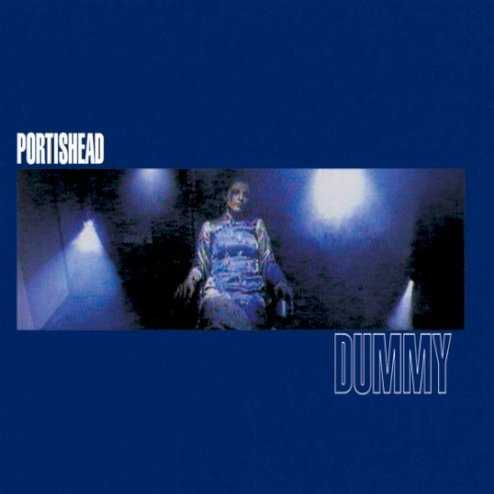 | Album: 1 of 9 Title: Dummy Released: 1994-08-22 Tracks: 11 Duration: 49:14 Scroll: Up Down Top Bottom 25% 50% 75% Spotify Wikipedia Allmusic AlbumCover | 1 Mysterons (05:06) 2 Sour Times (04:13) 3 Strangers (03:58) 4 It Could Be Sweet (04:19) 5 Wandering Star (04:53) 6 It’s a Fire (03:49) 7 Numb (03:57) 8 Roads (05:05) 9 Pedestal (03:41) 10 Biscuit (05:04) 11 Glory Box (05:04) |
| Dummy : Allmusic album Review : Portisheads album debut is a brilliant, surprisingly natural synthesis of claustrophobic spy soundtracks, dark breakbeats inspired by frontman Geoff Barrows love of hip-hop, and a vocalist (Beth Gibbons) in the classic confessional singer/songwriter mold. Beginning with the otherworldly theremin and martial beats of "Mysterons," Dummy hits an early high with "Sour Times," a post-modern torch song driven by a Lalo Schifrin sample. The chilling atmospheres conjured by Adrian Utleys excellent guitar work and Barrows turntables and keyboards prove the perfect foil for Gibbons, who balances sultriness and melancholia in equal measure. Occasionally reminiscent of a torchier version of Sade, Gibbons provides a clear focus for these songs, with Barrow and company behind her laying down one of the best full-length productions ever heard in the dance world. Where previous acts like Massive Attack had attracted dance heads in the main, Portishead crossed over to an American, alternative audience, connecting with the legion of angst-ridden indie fans as well. Better than any album before it, Dummy merged the pinpoint-precise productions of the dance world with pop hallmarks like great songwriting and excellent vocal performances. | ||
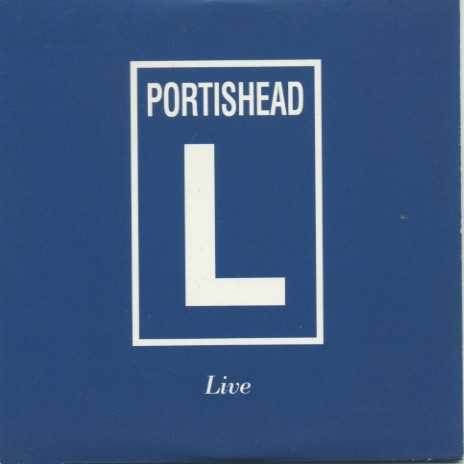 | Album: 2 of 9 Title: Live Released: 1995 Tracks: 3 Duration: 13:09 Scroll: Up Down Top Bottom 25% 50% 75% AlbumCover | 1 Sour Times (05:54) 2 Wandering Star (04:50) 3 Interlude (02:25) |
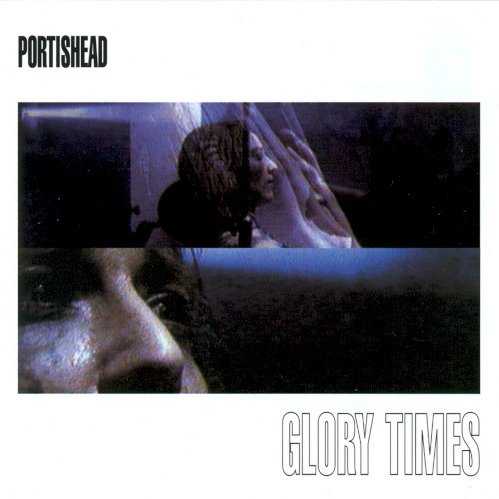 | Album: 3 of 9 Title: Glory Times Released: 1995-06-07 Tracks: 10 Duration: 46:44 Scroll: Up Down Top Bottom 25% 50% 75% AlbumCover | 1 Sour Sour Times (04:07) 2 Lot More (04:22) 3 Sheared Times (04:18) 4 Airbus Reconstruction (05:09) 5 Theme From “To Kill a Dead Man” (04:25) 1 Glory Box (edit) (03:35) 2 Glory Box (Mudflap mix) (05:27) 3 Scorn (06:06) 4 Sheared Box (03:29) 5 Toy Box (05:44) |
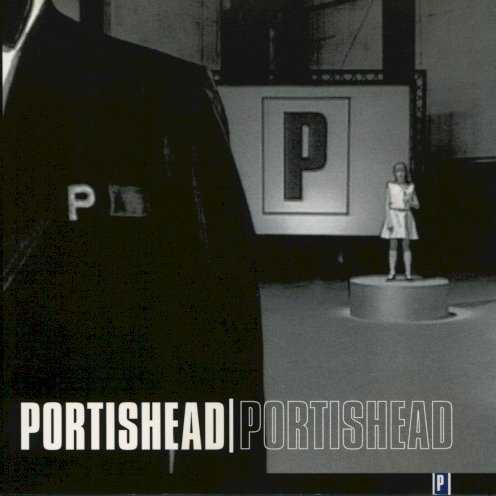 | Album: 4 of 9 Title: Portishead Released: 1997-09-29 Tracks: 11 Duration: 50:34 Scroll: Up Down Top Bottom 25% 50% 75% Spotify Wikipedia Allmusic AlbumCover | 1 Cowboys (04:42) 2 All Mine (04:02) 3 Undenied (04:24) 4 Half Day Closing (03:48) 5 Over (04:00) 6 Humming (06:03) 7 Mourning Air (04:15) 8 Seven Months (04:18) 9 Only You (05:02) 10 Elysium (05:57) 11 Western Eyes (03:59) |
| Portishead : Allmusic album Review : Portisheads debut album, Dummy, popularized trip-hop, making its slow, narcotic rhythms, hypnotic samples, and film noir production commonplace among sophisticated, self-consciously "mature" pop fans. The group recoiled from such widespread acclaim and influence, taking three years to deliver its eponymous second album. On the surface, Portishead isnt all that dissimilar from Dummy, but its haunting, foreboding sonic textures make it clear that the group isnt interested in the crossover success of such fellow travelers as Sneaker Pimps. Upon repeated plays, the subtle differences between the two albums become clear. Geoff Barrow and Adrian Utley recorded original music that they later sampled for the backing tracks on the album, giving the record a hazy, dreamlike quality that shares many of the same signatures of Dummy, but is darker and more adventurous. Beth Gibbons has taken the opportunity to play up her tortured diva role to the hilt, emoting wildly over the tracks. Her voice is electronically phased on most of the tracks, adding layers to the claustrophobic menace of the music. The sonics on Portishead would make it an impressive follow-up, but what seals its success is the remarkable songwriting. Throughout the album, the group crafts impeccable modern-day torch songs, from the frightening, repetitive "Cowboys" to the horn-punctuated "All Mine," which justify the detailed, engrossing production. The end result is an album that reveals more with each listen and becomes more captivating and haunting each time its played. | ||
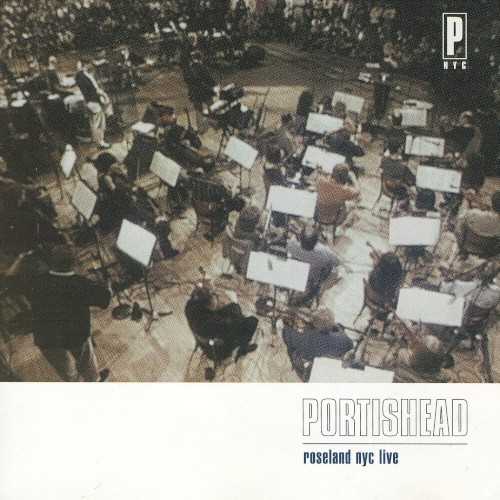 | Album: 5 of 9 Title: Roseland NYC Live Released: 1998-11-02 Tracks: 11 Duration: 57:33 Scroll: Up Down Top Bottom 25% 50% 75% Spotify Wikipedia Allmusic AlbumCover | 1 Humming (06:37) 2 Cowboys (05:02) 3 All Mine (04:03) 4 Mysterons (05:45) 5 Only You (05:22) 6 Half Day Closing (04:14) 7 Over (04:13) 8 Glory Box (05:38) 9 Sour Times (05:20) 10 Roads (05:52) 11 Strangers (05:22) |
| Roseland NYC Live : Allmusic album Review : By the end of the 90s, artists realized that CD and CD-R bootlegs of live performances were in high demand, which meant that they could profit by officially releasing certain "special" live performances. Portisheads one-night stand at New York Citys Roseland Ballroom, released as PNYC, certainly qualifies as one of those "special" occasions. Performing with a 35-piece orchestra, Portishead runs through selections from its two albums, favoring its second slightly. On the surface, it doesnt seem like the orchestra would add much to the performances, especially since the arrangements remain similar, but its presence makes the music tense, dramatic, and breathtaking. This is especially true of the material from Portishead. On album, several of these songs sounded a little flat, but here they soar right alongside such staples as "Mysterons," "Sour Times," and "Glory Box." That alone doesnt necessarily make PNYC revelatory -- instead, it deepens a listeners understanding of the artist, much like the Tindersticks The Bloomsbury Theatre. Which means, of course, that PNYC is much more compelling and essential than the average live album. | ||
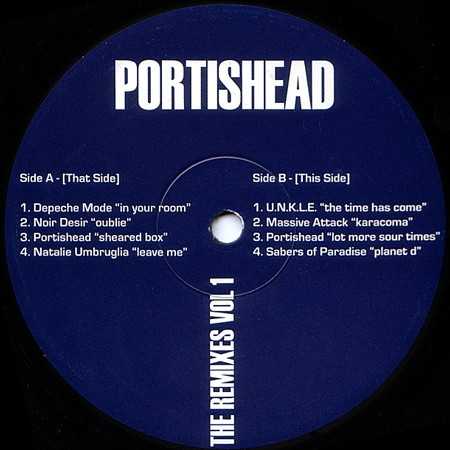 | Album: 6 of 9 Title: Portishead: The Remixes, Volume 1 Released: 2005 Tracks: 8 Duration: 34:48 Scroll: Up Down Top Bottom 25% 50% 75% AlbumCover | 1 In Your Room (The Jeep Rock mix) (06:20) 2 Oublié (Portishead remix) (03:39) 3 Glory Box (Sheared Box) (03:26) 4 Leave Me (Portishead remix) (04:21) 5 The Time Has Come (Portishead Plays Unkle mix) (04:02) 6 Karmacoma (Portishead Experience) (03:58) 7 Sour Times (Lot More) (04:23) 8 Planet D (Portishead remix) (04:39) |
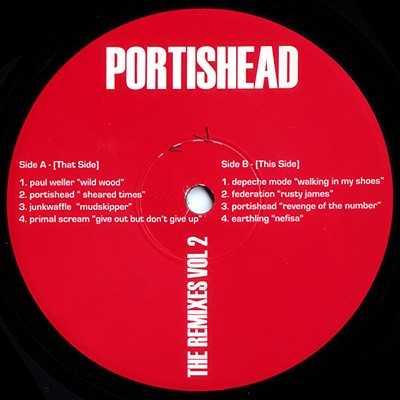 | Album: 7 of 9 Title: Portishead: The Remixes, Volume 2 Released: 2005 Tracks: 8 Duration: 39:12 Scroll: Up Down Top Bottom 25% 50% 75% AlbumCover | 1 Wild Wood (The Sheared Wood remix) (03:27) 2 Sheared Times (04:08) 3 Mudskipper (Portishead So-So mix) (05:44) 4 Give Out but Dont Give Up (Portishead remix) (05:01) 5 Walking in My Shoes (Grungy Gonads mix) (06:24) 6 Rusty James (Portishead remix) (05:22) 7 Revenge of the Number (03:22) 8 Nefisa (Portishead mix) (05:43) |
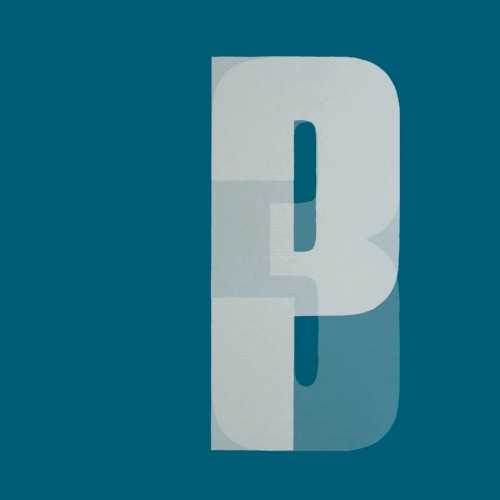 | Album: 8 of 9 Title: Third Released: 2008-04-08 Tracks: 11 Duration: 49:15 Scroll: Up Down Top Bottom 25% 50% 75% Spotify TrackSamples Wikipedia Allmusic AlbumCover | 1 Silence (05:00) 2 Hunter (03:58) 3 Nylon Smile (03:19) 4 The Rip (04:30) 5 Plastic (03:30) 6 We Carry On (06:27) 7 Deep Water (01:33) 8 Machine Gun (04:46) 9 Small (06:47) 10 Magic Doors (03:31) 11 Threads (05:47) |
| Third : Allmusic album Review : Mystery burns at the heart of Portishead, lurking deep within their music and their very image. From the outset they seemed like an apparition, as if their elegant debut, Dummy, simply materialized out of the ether in 1994, as their stately blend of looped rhythms, 60s soundtrack samples, and doomed chanteuse vocals had only a tenuous connection to such Bristol compatriots as Massive Attack and Tricky. Soon enough, Portisheads unique sound was exploited by others, heard in swank clubs and high-end dinner parties on both sides of the Atlantic, a development that the trio of Geoff Barrow, Beth Gibbons, and Adrian Utley bristled at instinctively, recoiling into the darker corners of their sound on their eponymous 1997 sophomore album before fading back into the ether leaving no indication when they were coming back, if ever. They returned 11 years later, seemingly suddenly, with Third, supporting the album with candid interviews that lifted the veil from their personality, yet the mystery remained deeper than ever within their gorgeous, unsettling music. That strain of uneasiness is a new wrinkle within Portishead, as in the 90s they favored a warm, enveloping melancholy, a rich sound that could be co-opted and turned into simple fashion, as it was by band after band in the heyday of the swinging 90s. So many groups grabbed ahold of Portisheads coattails that its easy to forget that in 1994 there was no other band that sounded quite like Portishead -- not even Massive Attack and Tricky, who shared many surface sounds but not a sensibility -- and that is just as true in 2008, years after trip-hop has turned into history. Their cold, stark uniqueness isnt due to a continuing reliance on the cinematic textures of Dummy, although there are echoes of that here on the slow-crawling album openers "Silence" and "Hunter," songs just familiar enough to act as reminders of how Portishead are special, yet just different enough to serve notice that the trio is engaged with the present, even if theyve happily turned into isolated recluses, working at a pace utterly divorced from the clattering nonsense of the digital world. Third is resolutely not an album to be sampled in 30-second bites or to be heard on shuffle; a quick scan through the tracks will not give a sense of what its all about. It demands attention, requiring effort on the part of the listener, as this defies any conventions on what constitutes art pop apart from one key tenet, one that is often attempted yet rarely achieved: it offers music that is genuinely, startlingly original. Surprises are inextricably intertwined throughout Portishead. There are jarring juxtapositions and transitions, as how the barbershop doo wop of "Deep Water" sits between those twin towers of tension of "We Carry On" and "Machine Gun," the former riding an unbearably relentless two-chord drone while the latter collapses on the backs of warring drum machines. Echoes of Krautrock and electronica can be heard on these two tracks, but that very description suggests that Third is conventionally experimental, spitting out the same hipster references that have been recycled since 1994, if not longer. These influences are surely present, but theyre deployed unexpectedly, as are such Portishead signatures as tremulous string samples and Utleys trembling guitar. Out of these familiar fragments from the past, Portishead have created authentically new music that defies almost every convention in its writing and arrangement. As thrilling as it is to hear the past and present collide when "Plastic" is torn asunder by cascading waves of noise, Third doesnt linger in these clattering corners, as such cacophony is countered by the crawling jazz of "Hunter" and the sad, delicate folk of "The Rip," but a marvelous thing about the album is that theres no balance. There is a flow, but Portishead purposely keep things unsettled, to the extent that the tonal shifts still surprise after several listens. Such messiness is crucial to Portishead, as theres nothing tidy about the group or its music. Experimental rock is often derided as being cerebral -- and this is surely enjoyable on that level, for as many times as Third can be heard it offers no answers, only questions, questions that grow more fascinating each time theyre asked -- but what sets Portishead apart is that they make thrillingly human music. Thats not solely due to Gibbons haunting voice, which may offer an entryway into this gloom but not its only glimpse of soul, as the perfectionism of Barrow and Utley have resulted in an album where nothing sounds canned or processed, the opposite of any modern record where every sound is tweaked so it sounds unnatural. Third feels more modern than any of those computer-corrected tracks as the groups very sensibility mirrors the 21st century, where the past is always present. Then, of course, theres that rich, fathomless darkness that Third offers, something that mirrors the troubled days of the new century but is also true to that shimmering, seductive melancholy of Dummy. Here, the sad sounds arent quite so soothing, but that human element of Portishead gives them a sense of comfort, just as it intensifies their sense of mystery, for it is the flaws -- often quite intentional -- that give this an unknowable soul and make Third utterly riveting and endlessly absorbing. | ||
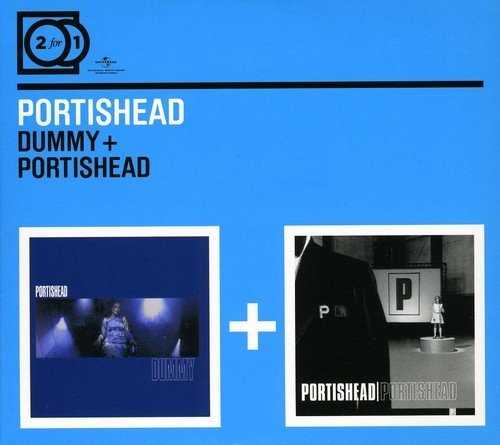 | Album: 9 of 9 Title: Dummy / Portishead Released: 2009 Tracks: 21 Duration: 1:35:41 Scroll: Up Down Top Bottom 25% 50% 75% Spotify AlbumCover | 1 Mysterons (05:06) 2 Sour Times (04:13) 3 Strangers (03:49) 4 It Could Be Sweet (04:19) 5 Wandering Star (04:53) 6 Numb (03:57) 7 Roads (04:56) 8 Pedestal (03:41) 9 Biscuit (05:04) 10 Glory Box (05:04) 1 Cowboys (04:42) 2 All Mine (04:02) 3 Undenied (04:24) 4 Half Day Closing (03:48) 5 Over (04:00) 6 Humming (06:03) 7 Mourning Air (04:15) 8 Seven Months (04:18) 9 Only You (05:02) 10 Elysium (05:57) 11 Western Eyes (03:59) |